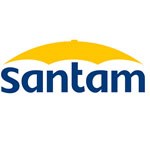
Top stories






More news





HR & Management
Kickstart your career: 7 steps to get job-ready in 2026









With no major developments or arrests in the investigation, both incidents remain a stark warning bell for businesses with high cash-turnover to review how they manage their risk. Whilst investigations are underway to determine the precise financial loss in each case, the skill and frequency of these thefts are becoming worryingly apparent.
"Highly secured environments like this are still exposed to a significant number of risks which must be taken into account, managed, and have insurance procured for," says Shehnaz Somers, Santam's head of Commercial Underwriting.
"We work together with our clients to identify their risk exposure by surveying their business where necessary and advising them on risk mitigation which may include risk transfer via an insurance policy to make sure that they are fully covered and advising them on other precautions they may take," says Somers.
According to SAPS crime statistics, incidents of cash-in-transit heists rose from 192 reported cases in 2003-4, to 467 cases in 2006-7. The figure dropped to 291 cases in 2010-11 and then again in 2011-12 with 182 reported cases, with incidents primarily occurring in Gauteng, followed by KwaZulu-Natal.
Despite the drop in cases, Somers says the recent spate of cash-in-transit robberies is concerning. "The methods used by thieves are becoming increasingly complex and companies have sought new ways to combat this type of crime."
One of the deterrents include the use of a cash staining dye within the cash box, which is a highly corrosive ink originally designed to destroy the cash. It is predominantly used to indelibly mark the cash and make it difficult to use.
"More recently, we've seen cash-in-transit companies such as G4S solutions announce robber-proof foam shields for their vans, as a means of mitigating their risk," adds Somers.
She mentions that security will always be a challenge for any cash business. "Businesses must be aware of the risks which they are exposed to. By not having correct systems in place for their premises, money and personnel, and if they have inadequate insurance cover, the business owner could face devastation."
Some safety measures high cash-turnover businesses may consider in order to reduce or prevent crime include the following:
Business owners should make sure that security measures, such as security lights, CCTV monitoring and alarms are in place, and that they are clearly visible and activated on the premises. Ensure that there is signage on the property informing potential criminals of the fact that security systems have been installed. Also test these systems and equipment regularly to ensure that they are in working order.
As additional security measures, business owners can install burglar bars, erect a security fence or wall around the premises, hire a reputable security company or start a community night-watch programme with other local businesses. "Businesses should however note that these measures alone won't be sufficient for insurance purposes as other factors need to be taken into account, such as the location of the business," says Somers.
Insurance cover for theft requires an alarm at the business premises. To ensure insurance cover for theft, a business alarm must be switched on and be in good working order after business hours. It is always advisable to check regularly that the system and its battery are in perfect condition. Ideally alarm systems should include panic buttons, tamper-proof switches and passives, end-of-line resistance, contacts and possibly vibration switches on safes. Armed response by a registered security company is often a requirement in terms of insurance policies.
If your business has a cash register, remove all the money at night and leave the register open to deter break-ins. Always ensure that you bank as much of your cash as possible. If a staff member leaves the company and has access to the safe, it is advisable to change the combination when they leave. They must also return keys or access cards when they leave.
Money is to be kept in a SABS-approved safe. Insurance companies provide different levels of cover for loss of money stolen from safes, depending on the SABS grading of the safe e.g. a SABS category five would provide more security than a SABS category one safe.
Vary the times of deliveries or when you do your banking. Sticking to the same schedule can make you an easy target for robbery.
Santam advises that high cash-turnover businesses have to ensure that safes and strong rooms are SABS-approved and that they have the appropriate security level for the amount of cover required; and to only use reputable money-transit agencies, and contracts with these agencies should state clearly where responsibilities lie.
For more information, go to www.santam.co.za.